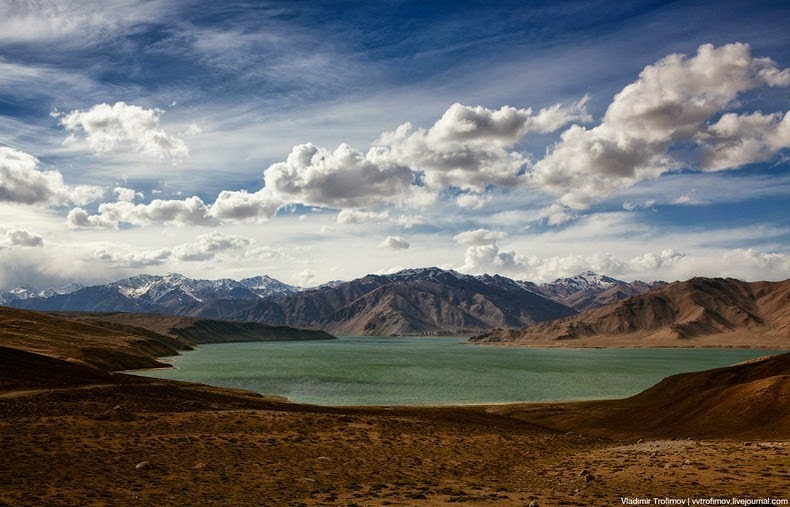Lake Karakul or "Black Lake" is located in the high and dry Pamir Mountains in Tajikistan, within the Tajik National Park, in one of the most beautiful and remote location in Central Asia. It is a deep brackish-water lake lying in a closed basin at an altitude of 3,900 meters above sea level. Surrounded by high mountains which block humid air masses, the valley receives less than 30 mm of precipitation a year making it one of the driest places in Central Asia. Between October to May the lake is entirely frozen and forms a white expanse when viewed from Karakul village where a small community of Kyrgyz people survive through nomadic herding of yaks, sheep and goats.
The lake is believed to have been formed when a meteor struck the earth approximately 25 million years ago. Eventually melt water from the surrounding mountains filled the basin forming Lake Karakul with a diameter of 25 km. Previously, the lake was known as Lake Victoria until the early 20th century, named after Queen Victoria of Britain. The name was changed with the advent of the Soviet system in the 1920s.
Lake Karakul has two basins separated by a peninsula from the south and an island in the north. The island is 8 km long and 4 km wide, and the strait between them is 1 km wide. The east basin is relatively shallow with a mean depth of 22 meters, while the west basin has a deepest point of 236 meters. Three rivers flow into Lake Karakul, but there being no outlet, the water is very salty.
The lake is popular among travelers for its unreal scenery and the clarity of its reflection in the water, whose color ranges from a dark green to azure and light blue during the summer.

Photo credit: Vladimir Trofimov






















Awesome...Its Beautifful Lake...
ReplyDelete